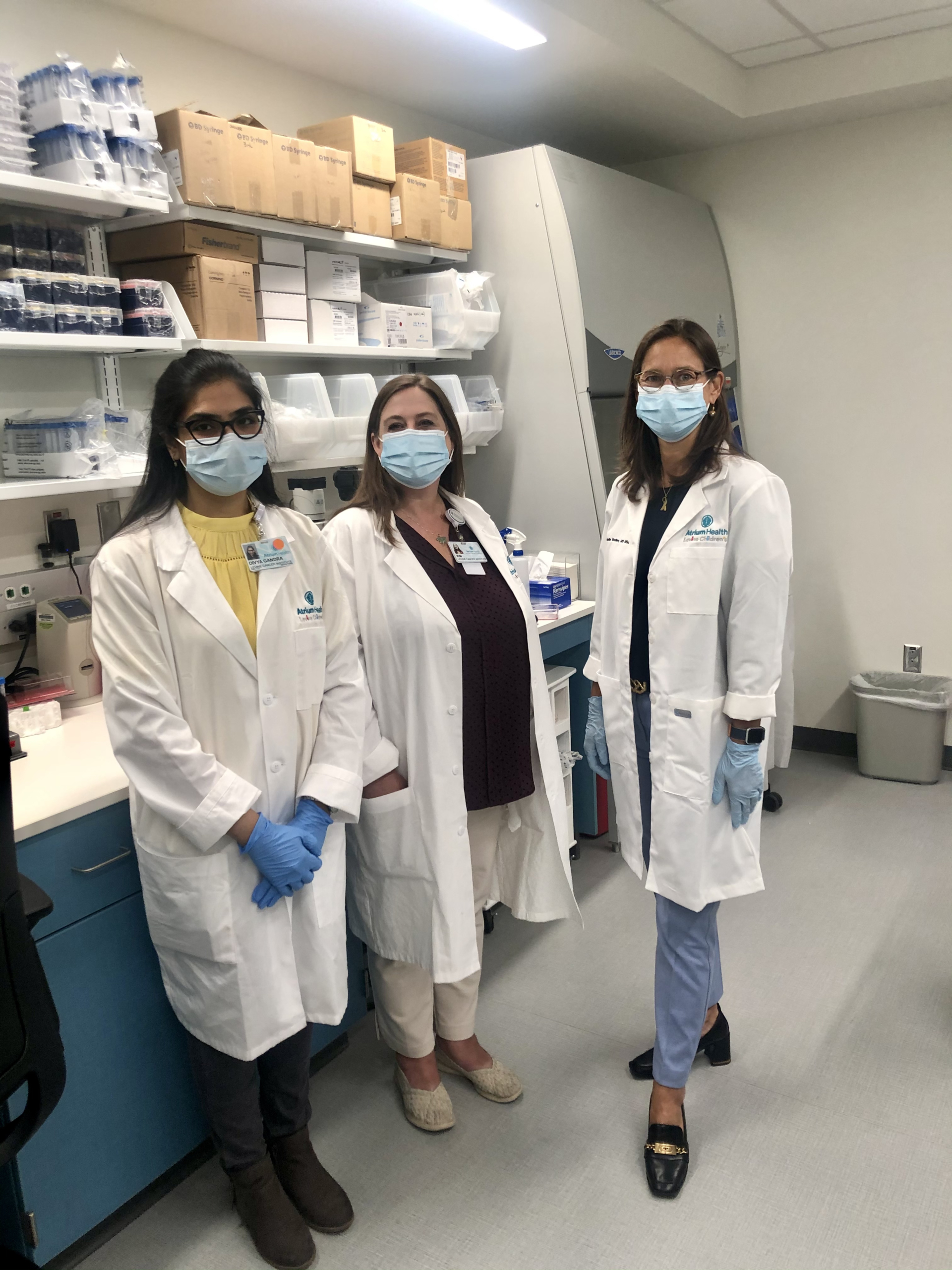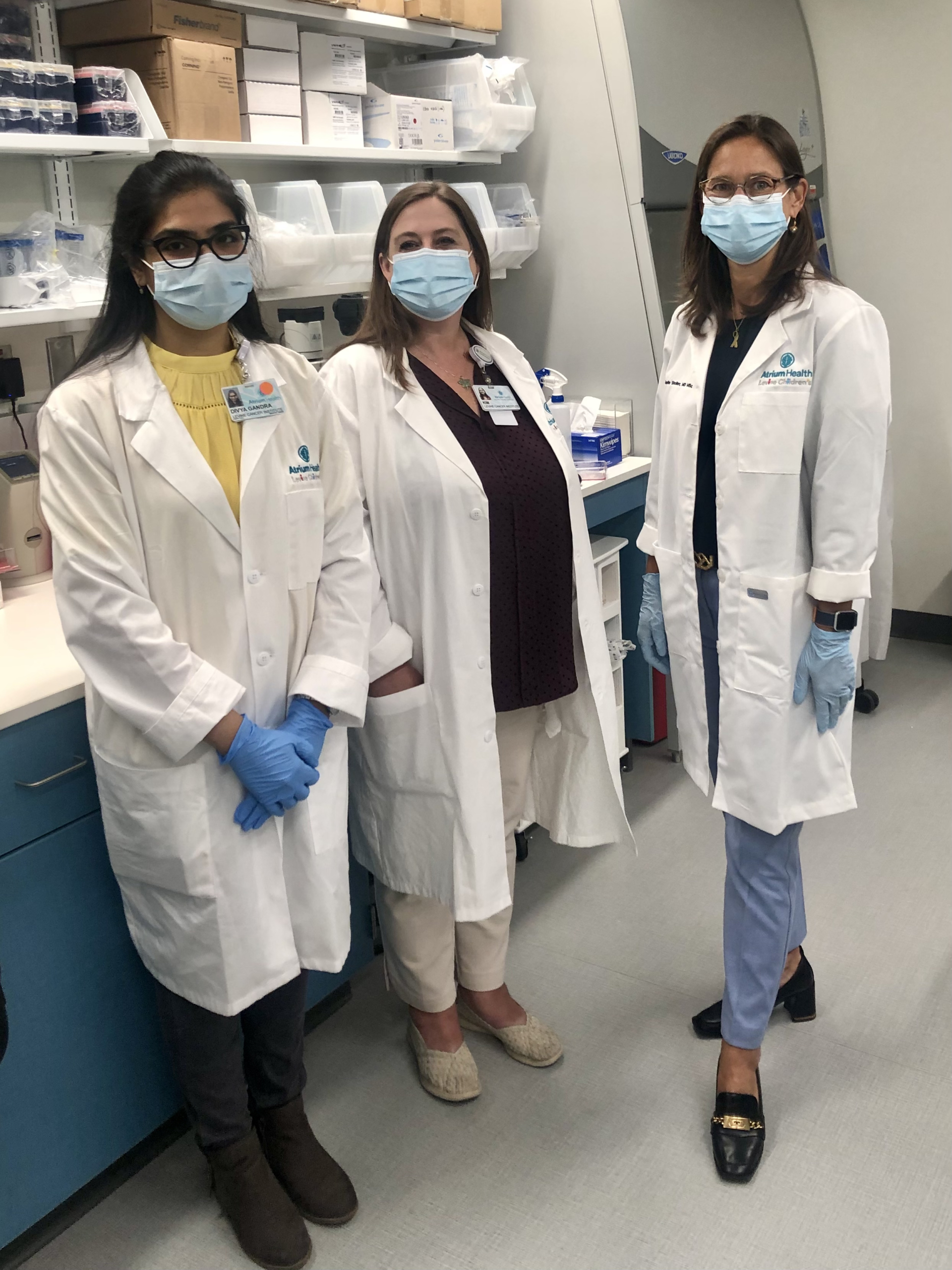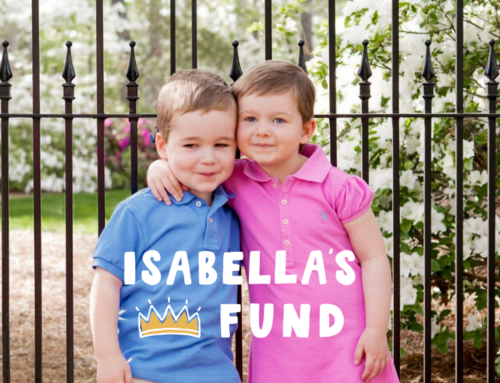
Levine Children’s Rare Pediatric Cancer Updates
Levine Children’s Rare Pediatric Cancer Updates
Written by Rachel Wood, Director of Marketing

Divya Gandra (Researcher), Kim McKinney (Lab Manager) & Dr. Sholler (Director)
We recently visited the Sholler Pediatric Cancer lab at Levine Children’s to present a $100,000 grant to childhood cancer research. This grant is helping fund Dr. Sholler’s clinical research trial, the P.E.A.C.H. Protocol, which combines precision medicine and immunotherapy for neuroblastoma.
Much of Dr. Sholler’s research is focused on pinpointing the genes and mutations that make a patient’s tissue turn cancerous. Her research team works to identify treatments and drugs that could disarm those mutations and stop the cancer. This is called precision medicine. She has been working on advancing precision medicine for years through the Beat Childhood Cancer research consortium before joining Levine Children’s as the Director for the ISF Rare & Solid Tumor Program.
Why is precision medicine important? Just like each patient, each cancer is extremely unique. While patients traditionally have been treated in a one-size-fits-all approach with toxic treatments, doctors are now using genomic data to treat patients and their tumors in a more targeted way. This is called Precision Medicine, which integrates the understanding of a child’s genes and the make-up of the tumor in that child to create more effective cancer therapies. This understanding of patient tumors enables doctors to make fully informed decisions in selecting medications targeting individual tumors. The problem… rare and solid tumors need more understanding.
While at the lab, we loved having the chance to talk about progress in Dr. Sholler’s research work and the ISF Rare & Solid Tumor Team. They continue to run at lightning speed!
Progress and updates…
CANCER RESEARCHERS: 2 new cancer researchers have been hired to further the development of research for sarcoma and neuroblastoma. One of those researchers started on Monday and the other starts next week. Dr. Sholler is currently recruiting for a Research Assistant Professor to add to the team.
OVER 100 CELL LINES DEVELOPED: Every child diagnosed with a solid & rare tumor at Levine Children’s will have their tumor collected, banked, sequenced, and created into cell lines for research. This is an incredibly important step to learn about each child and their tumor to help create better treatments and new clinical trials. The last time our team visited at the end of January, the first 2 rare pediatric cancer cell lines had just been developed. Over 100 cell lines have now been developed for their research. We had the chance to look at a Wilms Tumor line, a medulloblastoma, and a neuroblastoma line. It was fascinating.
REMOTE SECOND OPINION: A new program has rolled out at Atrium Health to help give patients a way to receive access to world-renowned guidance without having to leave their homes. The Levine Children’s ISF Rare & Solid Team has over a dozen referrals since the program opened in March. A great program for families who need guidance and more options for treating their children with rare cancers.
NEW ANTIBODY TREATMENT: In March, Levine Children’s administered their first several treatments of a new antibody treatment, Daneylza, Y-mAbs Therapuetics, to kids with high-risk neuroblastoma. They currently now have a waiting list for patients to receive the treatment. This treatment is designed to train the body’s own immune system to detect and destroy neuroblastoma cells that have survived chemotherapy or radiation therapy. Currently, LCH is the only facility in the country other than Memorial Sloan Kettering Cancer Center (MSKCC) in New York to offer this treatment in an outpatient clinic. This type of antibody treatment was the result of clinical research (3F8) at MSKCC and actually a type of treatment Isabella traveled to New York for.[/av_textblock]




